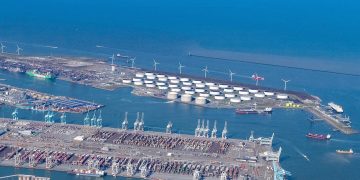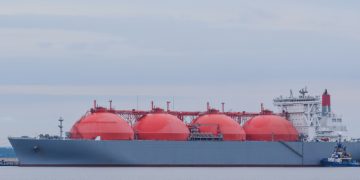As of March 2025, an estimated 8.4% of the global container fleet—amounting to approximately 2.65 million TEUs—is caught in delays tied to port congestion, a figure that continues to challenge supply chains worldwide . While many factors drive these bottlenecks—ranging from labor shortages to infrastructure constraints—vessel detentions resulting from Port State Control (PSC) inspections remain a critical but under-addressed contributor.
In this context, the maritime industry is turning to smart compliance solutions that integrate AI-powered tools with real-time compliance intelligence. A promising example is the collaboration between RISK4SEA, a leading PSC intelligence platform, and KAIKO Systems, a technology provider specializing in digitizing frontline operations for ship managers. Together, they offer a scalable way to mitigate inspection-related disruptions, ensuring smoother vessel flow through ports and contributing to broader supply chain resilience.
The hidden impact of PSC detentions on ports
Port State Control serves an essential role in ensuring maritime safety and environmental protection by inspecting foreign-flagged vessels and verifying their compliance with international conventions. However, detentions resulting from these inspections can cause substantial and unanticipated delays.
When a vessel is detained, not only is it held back from its schedule, but it also occupies berths, disrupts pilotage, tugs, and bunkering schedules, and causes downstream delays to cargo handling and terminal operations. The ripple effects of even a single detention can impact multiple vessels, customers, and carriers—ultimately translating to congestion at the port level and strained resources for port authorities.
The underlying issue is often preventable non-compliance, ranging from documentation errors and expired certificates to operational deficiencies like lifeboat malfunctions or oil record book discrepancies. Most of these stem from a lack of visibility into inspection trends and poor preparation at the vessel or fleet level.
The power of PSC intelligence
To shift from a reactive approach to proactive compliance, ship operators need access to predictive insights—data that not only explains past inspection results but also forecasts potential risks for future port calls.
This is where RISK4SEA comes in. As a specialized PSC Intelligence platform, RISK4SEA provides fleet managers with granular data on inspection trends, port-specific detention risks, and benchmarking tools that allow comparison against industry peers. The platform enables operators to:
- Prepare for upcoming PSC inspections based on port-specific patterns
- Identify fleet weaknesses with tailored inspection analytics
- Benchmark vessels against competitors to detect performance gaps
- Receive real-time alerts on inspection-related risks and updates
Such tools empower fleet compliance teams and vessel crew to target their efforts toward areas most likely to be scrutinized, significantly reducing the likelihood of deficiencies and detentions.
Digital workflows and frontline visibility
While intelligence is essential, turning insights into action requires robust workflow digitization—an area where KAIKO Systems excels.
KAIKO Systems offers a platform that digitizes technical operations aboard vessels, enabling structured data collection from the crew, intuitive task tracking, and seamless collaboration between ship and shore. By digitizing inspections, maintenance routines, and crew reporting, KAIKO Systems ensures that data captured from the front line is:
- Structured and traceable
- Analyzable in real time
- Directly linked to compliance goals
Real-world benefits
Reducing detentions has a direct and measurable impact on port efficiency. In addition to minimizing congestion, smoother vessel turnarounds contribute to:
- Lower operational expenditures (OPEX): Avoiding detentions eliminates costly idle time, extra port dues, and deviation-related penalties.
- Improved slot utilization at terminals: More predictable arrival and departure times support terminal planning and port authority operations.
- Better environmental performance: Fewer delays mean reduced emissions from idling vessels or unnecessary maneuvering.
- Enhanced customer satisfaction: Cargo owners and freight forwarders benefit from more reliable scheduling and fewer disruptions.
For ports, the indirect benefits are equally valuable. Fewer detentions mean less strain on inspection resources, better traffic flow management, and a stronger reputation as an efficient and reliable hub for international shipping.
A port-centric vision for the future
As ports increasingly embrace digital transformation, the need for upstream data integration becomes clear. With PSC detentions acting as both a compliance issue and a congestion factor, port authorities and terminal operators have a vested interest in seeing vessels arrive ready and compliant.
The RISK4SEA–KAIKO collaboration presents a blueprint for a smarter, more resilient port ecosystem. By bridging compliance data with operational execution, this integrated solution supports both shipping companies and port stakeholders in a shared mission: to keep vessels moving, ports efficient, and supply chains flowing.
In today’s high-stakes maritime environment, every delay counts—not just in dollars, but in global trade stability and operational integrity. Port congestion, exacerbated by avoidable PSC detentions, is a problem the industry cannot afford to overlook.
The maritime industry’s journey toward smart compliance is not just about technology—it’s about collaboration, foresight, and the commitment to keep our ports, our vessels, and our global trade arteries running smoothly.



























































